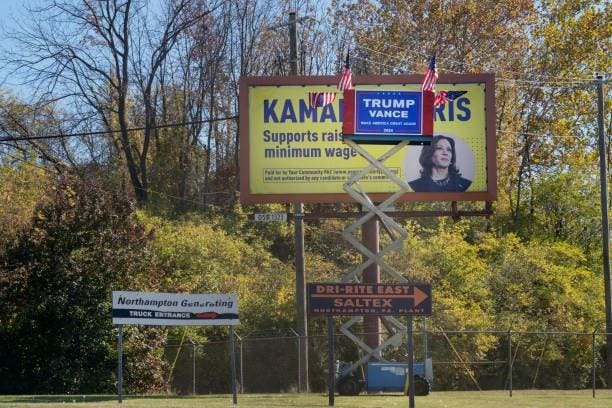Vice President Kamala Harris and former President Donald Trump have different stances on increasing the federal minimum wage, with Harris supporting at least $15 an hour while Trump has remained quiet on the issue since his visit to a McDonald’s. The issue of increasing the minimum wage has not received much attention during this year’s campaign despite inflation and the cost of groceries being major concerns. Harris’s support for a federal minimum wage increase makes it more likely to pass under a potential Harris administration, according to experts.
While states have been taking the lead on increasing minimum wages for the past 15 years, Congress has not passed federal minimum wage legislation since 2009. Only 1.1% of U.S. workers reported earning at or below the federal minimum wage in 2023, which includes people who may make more with tips not included. Regardless of the outcome of the election, states are likely to continue stepping in to fill the void left by Congress’s inaction on minimum wage legislation, according to experts.
On election day, voters in Alaska, California, and Missouri will have measures on their ballots to increase the minimum wage in their states, while Massachusetts and Arizona also have questions regarding tipped wages. Both Trump and Harris have supported eliminating taxes on tips, and if these measures pass, they could impact minimum wage policies in these states. Ultimately, Congress would still need to approve a federal minimum wage increase, even if a potential Harris administration pushes for it.
Although a $15 minimum wage is a politically popular policy, Congress has repeatedly voted down attempts to raise the federal minimum wage. Both Democratic and Republican lawmakers have differing beliefs on the role of states and the free market in determining minimum wage policies. Despite the political popularity of the issue, challenges remain in passing federal legislation to increase the minimum wage, especially if Republicans gain control of the Senate.
In the absence of federal minimum wage increases, some corporations have taken action to raise their minimum wages, in response to a tight labor market and competition for talent. Companies like Bank of America, Costco, and Home Depot have implemented company-wide minimum wage increases, with Bank of America committing to raising its minimum wage to $25 per hour. These corporate efforts have raised wages to levels where a slight federal increase may not make a significant difference, according to experts.
The issue of increasing the federal minimum wage remains a point of contention between political parties and lawmakers, with potential implications for workers and businesses. While state-level efforts have made progress in raising minimum wages, a federal increase could have a broader impact on addressing wage inequality. The outcome of the election and the priorities of lawmakers in Congress will ultimately determine the future of minimum wage policies in the United States.













